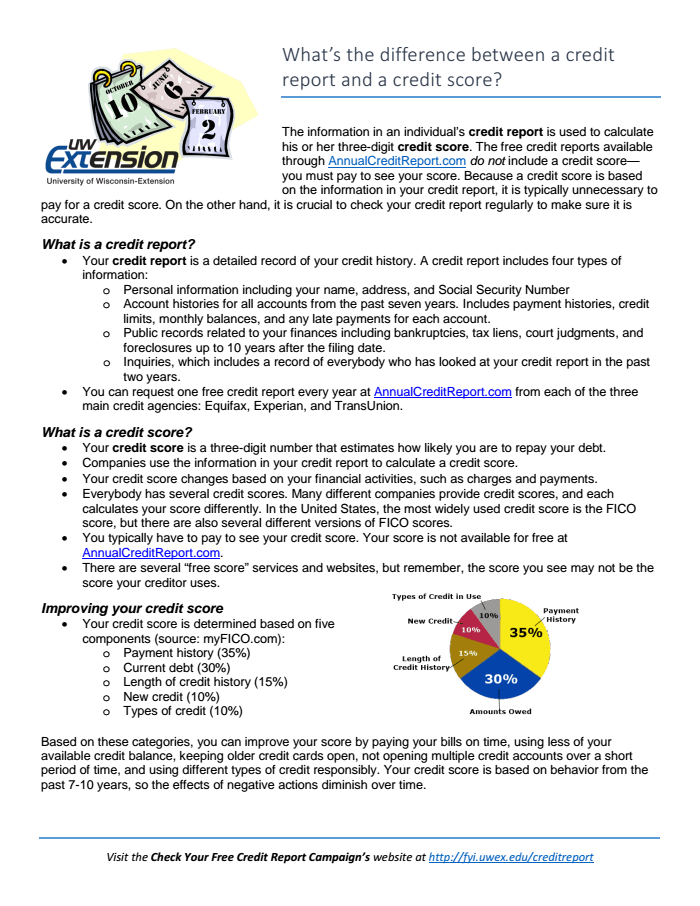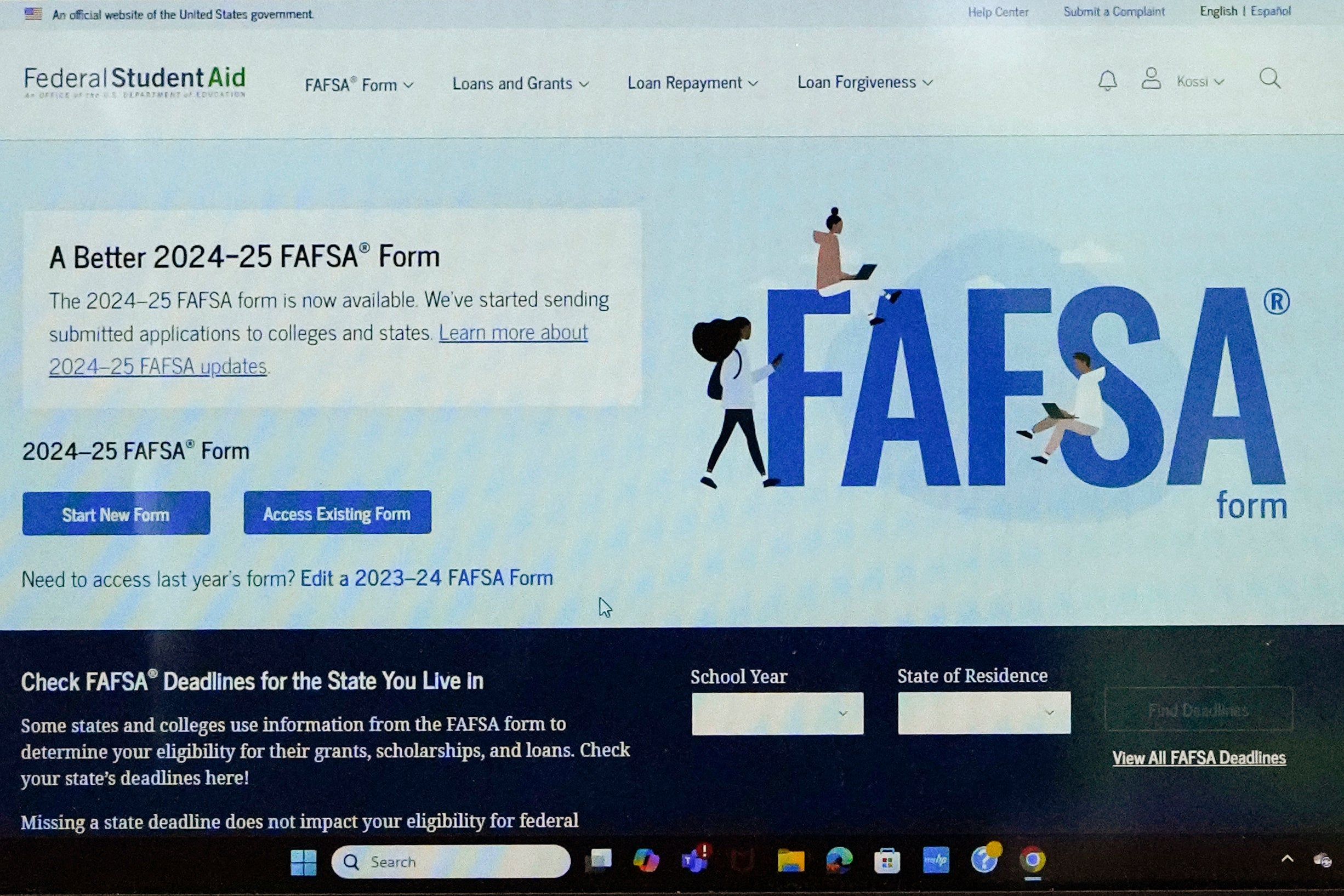Although many people use terms like “credit report” and “credit score” interchangeably, the two aren’t the same. A report is a detailed account of a person’s credit history while a score is a three-digit number signifying the individual’s overall credit-worthiness. Lenders use several versions of credit scoring models, such as the FICO score or VantageScore. While the various credit scoring companies have slightly different formulas, their models are all based on information found in a report.
Credit reports are increasingly important for many major financial transactions: getting loans and qualifying for lower interest rates, determining insurance premiums and renting a house or apartment. In addition, employers may use credit reports to screen job applicants, although some states are regulating the practice. Awareness of one’s credit report is also important for identifying potential identity theft.
Overall, establishing and maintaining good credit is important for people to be able to obtain affordable loans and build financial stability. Having a line of credit through a credit card or home equity loan, for example, can provide a financial cushion for unexpected emergencies. An individual’s access to car, home or small business loans is determined by her or his past handling of credit. The more positive the credit history, the more likely a person is to not only receive a loan, but to qualify for lower interest rates too.
Stay informed on the latest news
Sign up for WPR’s email newsletter.

Peggy Olive
A key step in monitoring your credit is to regularly review your credit report, yet understanding this information and its ramifications requires a certain kind of financial literacy.
In 2012, the FINRA Investor Education Foundation conducted its National Financial Capability Study, which assessed the financial competency of consumers on a state-by-state basis, including Wisconsin. According to the survey, 1 in 3 Wisconsin adults had obtained copies of their credit reports in the past year, the sixth-lowest rate of all states. Federal law allows individuals access to three free official credit reports every 12 months; however, access to a credit score is not free.
People unaware of their right to free reports from each credit reporting company — TransUnion, Experian and Equifax — might unnecessarily pay them for this information. In addition, many people purchase costly monitoring services, sometimes accidentally, by subscribing to an unofficial credit report website.
“Check Your Free Credit Report: 2/2, 6/6, 10/10” is an ongoing campaign to increase Wisconsinites’ access, attention and understanding of their credit histories, enabling them to correct errors or inaccuracies as needed. Assembled by University of Wisconsin-Extension and first rolled out in 2013, this campaign encourages individuals to sign up to receive email reminders to check their credit reports three times a year — on Feb. 2, June 6, and Oct. 10. To help people improve their financial literacy, the campaign offers four one-page guides that provide information about how to deal with the complexity of credit, including tips for reading a report and how to correct an error.

The campaign also highlights additional resources for consumers seeking assistance understanding the credit system, including AnnualCreditReport.com, a source for authentic free credit reports.
While email-reminder participants are told about an option to order all three free credit reports at the same time, the benefits of spreading them throughout the year is emphasized as a tool for effective credit monitoring. Research published in 2007 shows that increasing awareness of and attention to credit records helps individuals to better manage their credit, including the ability to dispute information in their reports. Identifying and correcting any problems as quickly as possible ensures a better credit report.
At the time they signed up for the email reminder, 72 percent of participants had not ordered credit reports in the past year. But in a year-end survey to reminder recipients, only 17 percent of respondents reported not ordering their official free credit reports, suggesting the campaign led to an increase in the number of participants viewing their reports and thus improving their overall financial literacy.
Furthermore, one in five participants ordered two or more reports during the year. Eighty-three percent of survey respondents who ordered and reviewed their credit reports found no errors, while 7 percent contacted a creditor or credit bureau to fix an error, 5 percent identified a way to improve their credit, and 2 percent obtained help through their local UW-Extension office.
This survey also provides more information about how consumers can improve their financial literacy about credit reports. Forty percent of respondents reported knowing very little or nothing about how long information stays in a credit report, 17 percent knew little or nothing about how information gets into a report, and 14 percent knew little or nothing about how information in a report affects their credit score. These findings can help direct educational efforts, media messaging and content to make credit monitoring and repair easier and more understandable for Wisconsin residents.
Editor’s Note: Peggy Olive is a senior outreach specialist with UW-Extension and the UW-Madison’s Center for Financial Security.
This report was produced in a partnership between Wisconsin Public Radio, PBS Wisconsin and the University of Wisconsin Cooperative Extension. @ Copyright 2024, Board of Regents of the University of Wisconsin System and Wisconsin Educational Communications Board.







